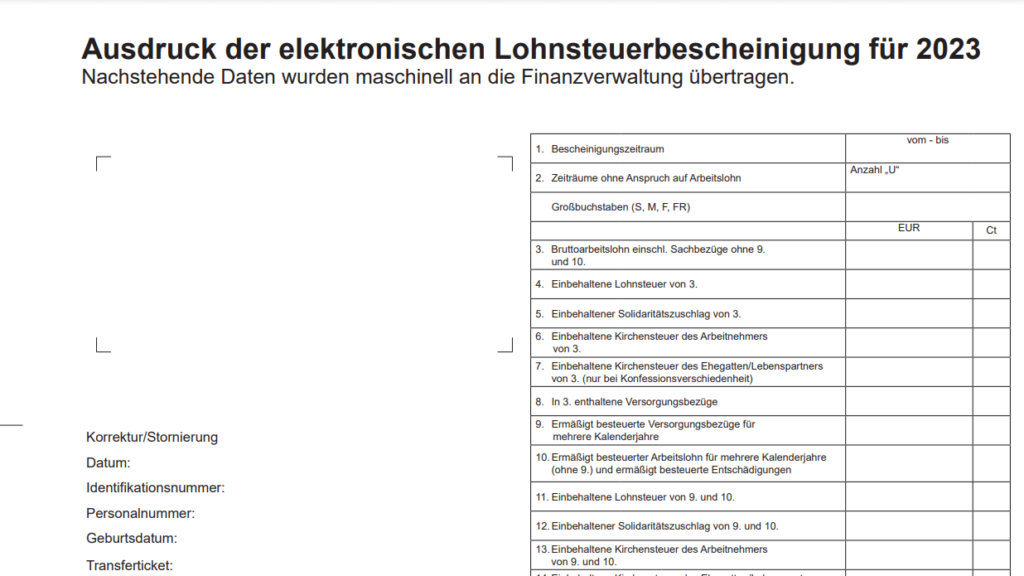Embarking on a master’s degree journey in Germany not only opens doors to academic excellence but also presents opportunities for potential tax benefits. Understanding the intricacies of tax deductions and benefits is crucial for master’s students to make informed financial decisions. In this comprehensive guide, we delve into the landscape of tuition and course fees, tax deductions, and the potential tax benefits available for master’s students in Germany.
Key takeaway
- The tuition & course fee for Master’s studies can be fully tax deductible in germany.
- This can been claimed while submitting the tax returns.
- Along with tuition fee several other study related costs can also be tax deductible.
1. Tuition & course fees in Germany
Germany’s education system, particularly in the public sector, is renowned for its accessibility and affordability. Most states in Germany do not impose tuition fees for undergraduate and postgraduates programs at public universities. However, some exceptions may apply, such as fees for non-EU international students or certain specialized master’s programs. But private universities may charge tuition fees, and it’s essential for students to be aware of the fee structure specific to their institution.
2. Tax Deductions
One of the key financial considerations for master’s students in Germany is the potential tax deductions related to education expenses. The German tax system allows for the deduction of certain costs associated with pursuing higher education. This includes but is not limited to
- Tuition fees
- Books and study materials
- Travel expenses directly related to educational activities
2.1 Tuition Fees
In Germany, tuition fees at public universities are generally low or nonexistent for most programs. However, if a master’s program has tuition fees, these fees are typically tax-deductible. Students can include the total amount paid for tuition when calculating their deductible education expenses. It’s essential to keep records of tuition payment receipts and any related documentation to support these deductions during the annual income tax return filing.
2.2 Books and Study Materials
The costs associated with purchasing books, required readings, and study materials for master’s courses are also eligible for tax deductions. Students can include these expenses when calculating their total deductible amount. Again, maintaining detailed records, such as receipts and invoices, is crucial to substantiate these deductions.
2.3 Travel Expenses for Educational Purposes
Master’s students may incur travel expenses directly related to their educational activities. This could include attending conferences, workshops, or other events relevant to their field of study. These travel expenses are generally considered tax-deductible. As with other deductions, proper documentation, such as receipts and proof of the educational nature of the travel, is necessary for accurate reporting during tax filings.
2.4 Other Eligible Expenses
While tuition, books, and travel expenses are common deductions, it’s essential to stay informed about other potentially eligible expenses. This could include expenses for research materials, specialized software, or other items directly related to the educational requirements of the master’s program. Consulting with a tax professional can provide insight into the full range of deductible expenses based on individual circumstances.
3. Tax Benefits for Master’s Students
Master’s students in Germany can leverage several tax benefits to optimize their financial situation
- Annual Income Tax Return: The mechanism through which master’s students can benefit from these tax deductions is the annual income tax return. When filing their tax return, students can declare the eligible education expenses, reducing their taxable income for the year. This can result in a lower overall tax liability, providing financial relief for the costs associated with pursuing a master’s degree.
- Education-Related Expenses: Beyond tuition fees, eligible education-related expenses may encompass books, study materials, and travel costs incurred for educational purposes.
4. Scholarships and Financial Aid
Navigating the tax implications of scholarships and financial aid is crucial for master’s students:
- Tax-Exempt Scholarships: In some cases, scholarships may be tax-exempt, providing financial relief to students. Understanding the tax treatment of scholarships is vital for accurate financial planning.
- Taxable Income Considerations: On the other hand, certain scholarships or financial aid may be considered taxable income. Master’s students should be aware of the tax implications associated with the financial support they receive.
5. Consultation with Tax Professionals
Given the dynamic nature of tax laws and individual variations in circumstances, seeking guidance from tax professionals is strongly recommended:
- Personalized Advice: Tax professionals can provide personalized advice tailored to the unique circumstances of master’s students. This includes optimizing tax deductions and ensuring compliance with current regulations.
- Staying Informed: As tax laws can undergo changes, staying informed about the latest developments and consulting with professionals is essential for accurate financial planning.
6. Conclusion
Embarking on a master’s degree in Germany involves not only academic pursuits but also a financial journey that can be optimized through strategic tax planning. Understanding the landscape of tuition and course fees, leveraging tax deductions, and being aware of potential tax benefits empower master’s students to make informed decisions that align with their financial goals. By staying informed and seeking professional advice, students can navigate the complexities of the German tax system and make the most of available opportunities for financial optimization during their master’s studies.


